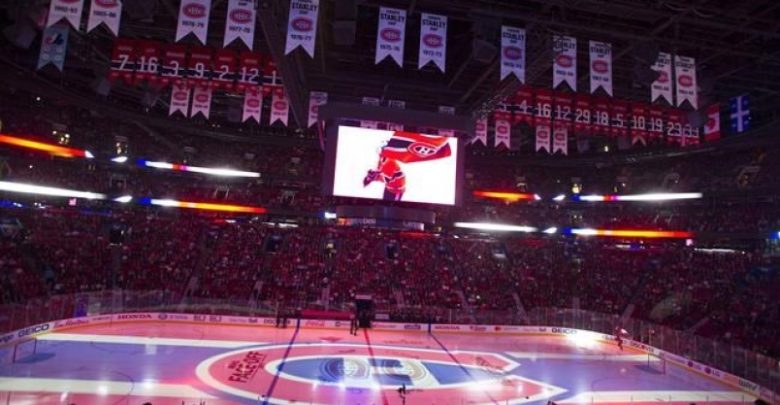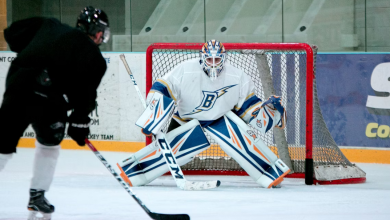5 players that could be named captain of the Montreal Canadiens in 2018-19
Find out which Canadiens' player should captain the Original Six franchise

The Montreal Canadiens are in need for their third captain in the last decade, after Montreal traded Max Pacioretty to the Vegas Golden Knights this past offseason.
The Canadiens’ performance on the ice has truly been a roller coaster over the past decade, and the team has only begun a season without a captain on two other occasions (2009-10 & 2014-15).
HOHM makes a case for five Canadiens players that should act as the team’s captain next season and have the “C” stitched onto their Original Six sweater.
Tomas Plekanec
After spending his entire career with the Montreal Canadiens (2003-2018), center Tomas Plekanec was dealt to the Toronto Maple Leafs at the 2018 NHL Trade Deadline.
It was rumored the longtime Montreal skater was going to re-sign with the Canadiens this past offseason, and the former third-round draft pick did in fact ink a one-year deal with the team. Considering that Montreal is still in a transition stage and hasn’t named a captain yet, Plekanec could be a safe option to name as the team’s captain for 2018-19.
Two Tomas Plekanec moments stick out: OT winner vs. WSH in game one of the 2010 playoffs and this game-tying goal vs. NYR in game two last year. One of my all-time favorite Habs. #Turtleneck #AuRevoir pic.twitter.com/K0t5gTwAvM
— Pat Durant (@durant015) February 25, 2018
The Czech native has embraced his entire playing career in Montreal, as have the die-hard fans. No, the 35-year-old isn’t the same caliber skater he was once for Habs nor is it a sure bet he won’t be traded again at the deadline, but he’s an option to don the “C” for the Canadiens come October.
At this point in time, he’s more than ready to act as a true captain for Montreal.
Paul Byron
After spending three seasons with the Montreal Canadiens, forward Paul Byron is set to don a Canadiens sweater for the next five seasons.
Paul Byron's 20th goal of the season. #Habs pic.twitter.com/5ftwXChaCW
— Peter Alper (@PeteAlper) March 20, 2017
The former sixth-round draft pick (2007) realistically is an option to captain the Canadiens entering 2019, and is clearly appreciated by general manager Marc Bergevin. He’s not necessarily a stand out to be named captain, but there aren’t too many other choices that Montreal can choose from at the given moment.
The 28-year-old has recorded 144 career points (70 goals, 74 assists) in 363 games played entering 2018-19. Bryon also averaged a career-high 16:08 of ice-time last season.
Brendan Gallagher
Gritty forward Brendan Gallagher has own over the hearts of Montreal since joining the Canadiens back in 2012-13. The former fifth-round draft pick (2010) appears to be a fan-favorite choice to don the coveted captain’s letter “C” for the Habs next season.
Brendan Gallagher notched his 23rd goal of the season to put the #Habs up 1-0 over the #Bruins. pic.twitter.com/YmANT5u9JH
— Sportsnet (@Sportsnet) March 3, 2018
The 5-foot-9 forward wears his heart on his sleeve, and his passion to skate with the Canadiens is second to none. If there were an ideal time for Gallagher to wear the “C,” then now is the time.
The 26-year-old is in the prime of his career and wore an “A” last season as one of the team’s assistant captains. In just six seasons with Montreal, he’s already experienced just about every emotion a player can while donning a Canadiens jersey.
He’ll lead by example and embrace his new role as the team’s pulse.
Carey Price
There’s no doubt that the Montreal Canadiens will have a serious conversation about naming Carey Price as their captain. Yes, NHL goaltenders technically aren’t allowed to be named captain or wear the “C” on their jerseys, but other goaltenders have been named captain by their respective teams.
Okay but how about this Carey Price save.https://t.co/VzRTyVA6Fp
— NHL (@NHL) January 11, 2015
Most recently, fellow countryman, Roberto Luongo, was “named” the captain by the Vancouver Canucks in 2008 which lasted until the end of the 2010 campaign. Luongo painted a “C” in the bottom/chin area of his goalie mask – if case you’re wondering.
Still, Price is the face of the franchise, and similar to Gallagher and Plekanec, the former fifth-overall selection (2005) has been through every up and down that the Canadiens could possibly experience aside from winning a Stanley Cup championship.
The city of Montreal and his teammates would embrace the idea of Price being named the captain, and the timing may just be right for the 31-year-old to make Canadiens’ history.
Shea Weber
As soon as defenseman Shea Weber was acquired by the Montreal Canadiens back in 2016, fans were immediately calling for the 6-foot-4 skater to strip the “C” away from Max Pacioretty.
Shea Weber has a nearly unstoppable cannon of a slap shot. https://t.co/enc0eIrdPH
— NHL (@NHL) October 30, 2016
Weber fits the mold to act as the Canadiens’ captain, especially after the two-time Canadian Olympic Gold Medalist captained the Nashville Predators for six seasons. The defenseman is efficient on both sides of the puck, while entailing the right type of personality to lead a Canadiens team that’s in a transition period.
It’s a new leaf in Montreal, and it’s time for Weber to skate with what’s rightfully his – the captain’s “C.”
Tweet your NHL related questions to @KMcKenna_tLT5 to have them answered & be sure to use the hashtag #McKennasDigest
Kyle McKenna covers the NHL for Hooked On Hockey Magazine. He can be reached on Twitter (@KMcKenna_tLT5)

